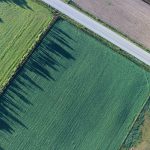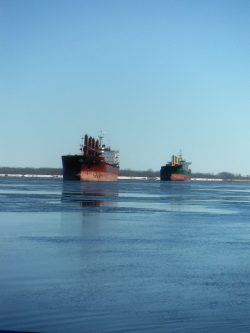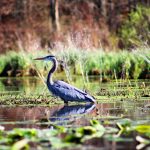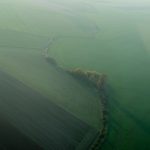Jérôme Dupras
Professor of Ecological Economics

819-595-3900 poste 2931
Research themes
Ecological economy, human geography, territory development
Education
- 2009 – 2014 : PhD in Geography – Université de Montréal
- 2009 : Biofuels School – International Forum of Public Universities – Universidade de São Paulo (Brazil)
- 2007 – 2008 : Master of Geography – Université de Montréal (Accelerated Ph.D. 2008)
- 2006 : Certificate in Ecology – Université du Québec à Montréal (not completed)
- 1999 – 2002 : Bachelor of Science – Biochemistry – Université de Montréal
Description of research
Professor in the Department of Natural Sciences of the Université du Québec en Outaouais and researcher at the Institute of Sciences of the Temperate Forest (ISFORT). He holds a PhD in Geography and a BSc in Biochemistry from the Université de Montréal and completed a Postdoctoral fellowship in the Department of Biology at McGill University. His research interests focus on the economic valuation of ecosystem services, the relationship between ecosystems and the production of ecosystem services, and governance and land use planning.
Research Chair in Ecological Economics
Professor Dupras has also just become the holder of a brand new research chair: the Canada Research Chair in Ecological Economics. This chair, the first in this field in the country, will aim to better understand and measure the contribution of biodiversity and ecosystems to human well-being. To do this, an analysis of agricultural, forest and urban territories will be carried out, based on socio-ecological modeling, economic theory and environmental governance. From a sustainable development perspective, Professor Dupras’s research will aim to develop frameworks and tools that promote an economy that respects the conditions and capacities of nature and communities.
-
add removeKey publications
- Alam, M., Dupras, J. & C. Messier. 2016. A framework towards a composite indicator for urban ecosystem services. Ecological indicators 60 : 38-44.
- Alam, M., Olivier, A., Paquette, A., Dupras, J., Revéret, JP. & Messier, C. 2014. A general framework for the quantification and valuation of ecosystem services of tree-based intercropping systems. Agroforestry systems 88 (4) : 679-691.
- Dupras, J., Marull, J., Parcerisas, L., Coll, F., Gonzalez, A., Girard, M. & Tello, E. 2016. The impacts of urban sprawl on ecological connectivity in the Montreal Metropolitan Region. Environmental Science & Policy 58 : 61-73.
- Dupras, J. & Alam, M. 2014. Urban sprawl and ecosystem services: A half century perspective in the Montreal area (Quebec, Canada). Journal of environmental policy & planning 17 (2) : 180-200.
- He, J., Moffette, F., Fournier, R., Revéret, JP., Théau, J., Dupras, J., Boyer, JP., … 2015. Meta-analysis for the transfer of economic benefits of ecosystem services provided by wetlands within two watersheds in Quebec, Canada. Wetlands Ecology and Management 23 (4) : 707-725.
-
add removeProjects
ANCRAGE : Agriculture, Nature and Communities – Action Research in Environmental Governance
The development and intensification of agricultural activities in recent decades has been necessary to meet the food needs of a growing world population. However, they have been accompanied by various changes in farming practices that cause several environmental problems. To limit these environmental problems, initiatives have been implemented in several countries to encourage farmers to adopt agro-environmental practices, agricultural methods aimed at reducing potential negative impacts on the environment. However, although the benefits of agro-environmental practices are well documented, their sustainability over time is fragile. Indeed, when the various supports (e.g. financial, technical, informational) that helped to implement them end, they are often neglected and a return to the original practices is observed. This project aims to assess the sustainability of agro-environmental practices in Québec through an analysis of the behavior of agricultural stakeholders and the potential for support measures and economic incentives. The main objective of the project is to improve the efficiency and adoption of agro-environmental practices through the study of payment programs for ecosystem services (PES) in agricultural areas in Quebec. To do this, we will seek to identify the criteria for the success of PES programs that can be generalized; identify the characteristics that encourage farmers to participate in PES programs in Quebec; develop PES scenarios (pilot projects) in agroforestry and wetland conservation areas; assess the economic viability, in terms of total value, of PES programs; and estimate the demand of citizens and farmers for PES. This project is funded by the Ministry of Forests, Wildlife and Parks, the Ouranos Consortium and the David Suzuki Foundation.



Green and blue infrastructure in urban areas
Global Change (GC) is increasingly threatening the green infrastructure of our cities, especially trees and associated vegetation. Indeed, these are affected more and more by the increase in environmental stresses and exotic insects and diseases. However, these trees provide directly and indirectly, through the functioning of the urban terrestrial ecosystem that ensues, many ecosystem services essential to our well-being. These services are likely to be significantly reduced by these growing threats from GCs. The hypothesis underlying this project is that the resistance and resilience of urban and peri-urban ecosystems, and consequently the ecosystem services they provide, can be increased by promoting greater structural diversity of ecosystems, greater functional diversity of trees and associated vegetation, and greater connectivity of green spaces to meet the global changes predicted for southern Quebec in the coming years. We are working in the areas of greater Montreal, Ottawa / Gatineau and Quebec City to plan biodiversity corridors, measure the flow of ecosystem services, and carry out an economic assessment. This project is funded by the National Capital Commission, the David Suzuki Foundation and the Center for Biodiversity Science.



Socio-ecological modeling of the sound environment during navigation-whale interactions in the St. Lawrence River estuary
 The St. Lawrence Estuary (SLE) is the scene of multiple interactions between navigation activities and marine mammals. These interactions pose a threat to several whale species, particularly for the recovery of populations at risk such as blue whales, beluga whales and fin whales. Among the negative impacts of navigation on whales, it’s mainly the collisions and the disturbance caused by the exposure of animals to noise. To reduce the risk of lethal collisions between merchant marine traffic and large whales in the SLE, the Marine Transportation and Marine Mammal Protection Working Group (G2T3M) has proposed the implementation of voluntary speed reduction measures and the establishment of areas to be avoided by merchant ships. In its search for solutions to reduce the risk of collisions, the G2T3M used the 3MTSim (Marine Mammal and Maritime Traffic Simulator) socio-ecological model. This project aims to integrate into 3MTSim a model for the emission and propagation of noise generated by navigation in order to evaluate the sound environment of whales. This research project is funded by the Marine Environmental Observation Centers Prediction and Response Network (MEOPAR).
The St. Lawrence Estuary (SLE) is the scene of multiple interactions between navigation activities and marine mammals. These interactions pose a threat to several whale species, particularly for the recovery of populations at risk such as blue whales, beluga whales and fin whales. Among the negative impacts of navigation on whales, it’s mainly the collisions and the disturbance caused by the exposure of animals to noise. To reduce the risk of lethal collisions between merchant marine traffic and large whales in the SLE, the Marine Transportation and Marine Mammal Protection Working Group (G2T3M) has proposed the implementation of voluntary speed reduction measures and the establishment of areas to be avoided by merchant ships. In its search for solutions to reduce the risk of collisions, the G2T3M used the 3MTSim (Marine Mammal and Maritime Traffic Simulator) socio-ecological model. This project aims to integrate into 3MTSim a model for the emission and propagation of noise generated by navigation in order to evaluate the sound environment of whales. This research project is funded by the Marine Environmental Observation Centers Prediction and Response Network (MEOPAR).Quebec Environmental and Economic Accounting Systems
For about ten years, the value of ecological services (ES) has been the subject of increasing institutional demand, particularly at the level of Systems of National Accounts. In this context, a pilot project integrated into the framework of the System of Environmental- Economic Accounting (SEEA) will provide a first estimate of the economic value of ES produced by ecosystems in southern Quebec and compare their evolution over time. Our approach is based on a combination of spatial analysis of ecosystem quality, ES biophysical flow estimation and ES economic analysis using market price methods, replacement costs and profit transfer. Our approach will lead to the development of a methodology of the economic mapping of ES integrated into the SEEA and will produce new information on the environmental and economic state of the territory and its evolution over time. This project is funded by the Social Sciences and Humanities Research Council of Canada (SSHRC).



-
add removeStudents and postdoctoral fellows
Étudiants actuels
Stagiaires postdoctoraux
- Vijay Kolinjivadi
- Sylvia Wood
- Charlène Kermagoret
- Céline Jacob
Doctorat
- Alejandra Zaga Mendez
- Ann Lévesque
- Caroline Simard
- Rose Kikpa Bio
- Chloé L’Ecuyer-Sauvageau
- Aurélien Rigolet
- Marc-André Guertin
- Matthieu Beaumont
Maîtrise
- Félix Lorrain-Landry
- Caroline Bergevin
- Alexandre Beaudoin
Étudiants diplômés
Stagiaires postdoctoraux
- 2015-2018 Jean-François Bissonnette
- 2016-2018 Bronwyn Rayfield
- 2015-2017 Clément Chion
- 2014-2016 Lluis Parcerisas
- 2015-2017 Dominic Lagrois
Maîtrise
- 2017-2018 Ann Lévesque
- 2015-2018 Jeoffrey Auclair
- 2014-2017 Cédric Bertrand
- 2015-2017 Frédérique Pellerin
-
add removeAvailable projects (coming soon)
arrow_backBack to Team
